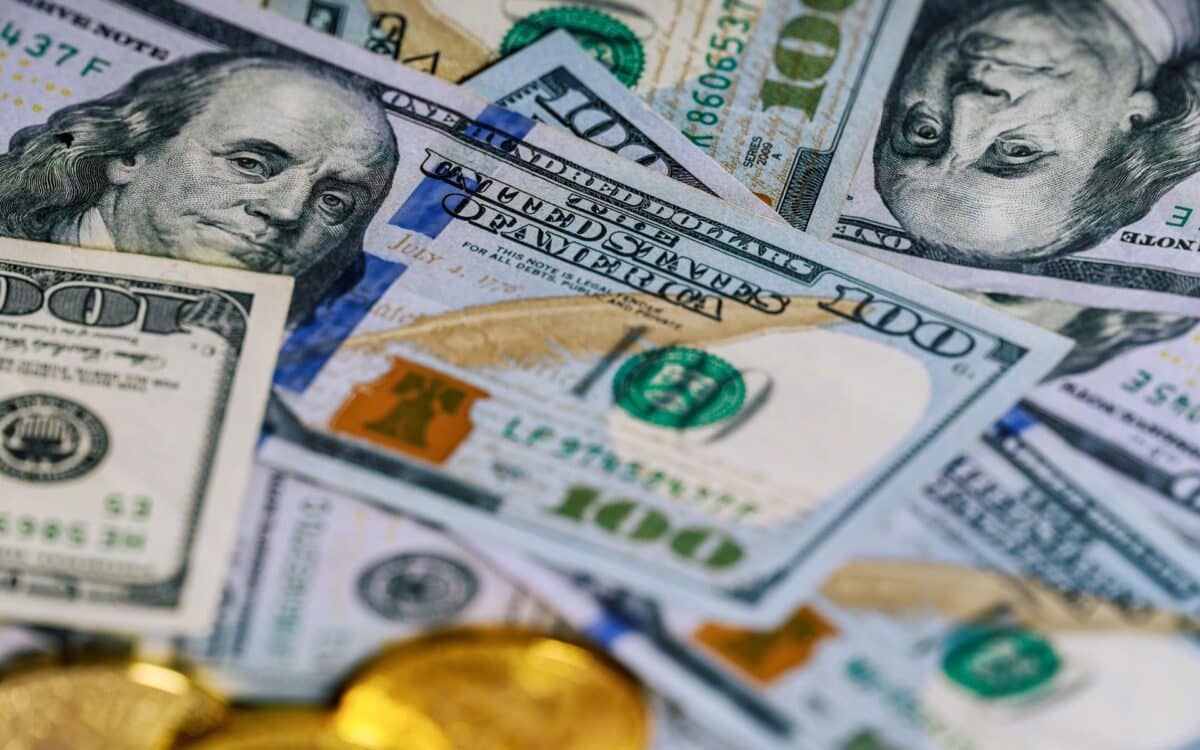In recent days, the U.S. dollar has experienced a sharp reversal, shifting from its traditional role as a global safe haven to becoming a symbol of growing uncertainty, largely due to escalating tariffs. This abrupt change is largely attributed to President Donald Trump’s unpredictable tariff policies, which have significantly undermined investor confidence.
The imposition of new tariffs on key trading partners has sparked fears of a trade war, creating instability that ripples through global financial systems.
According to Reuters, the uncertainty surrounding these measures has led to volatile market conditions, impacting not only currency values but also broader economic prospects worldwide.
Dollar’s Decline and Global Market Reactions
The effects of Trump’s trade tariffs have been most evident in the Treasury market, which experienced its largest weekly increase in borrowing costs since 1982. Offshore funds have begun fleeing the U.S., reflecting growing concerns about the future stability of the dollar.
Ray Attrill, head of FX strategy at National Australia Bank, commented,
“The U.S., almost overnight, it seems to have lost its safe-haven attributes,” he added.
There is … a loss of confidence to some extent … you’re overlaying that with the loss of exceptionalism and the view that in the short-term, at least, it’s the U.S. economy that’s going to be suffering more than any other from what’s happening on the tariff front.
The dollar’s performance has been weak, plunging to its lowest levels in over a decade against the Swiss franc and falling to a three-year low against the euro. These developments have raised questions about the future of the dollar as the world’s dominant currency.
Historically, the Bretton Woods system, established in 1944, anchored the dollar’s global dominance, but the current geopolitical landscape is beginning to challenge that longstanding position.
“The whole premise of the dollar as a reserve currency is being challenged, effectively, by what we’ve seen since Trump’s election,” said Attrill.
The Erosion of u.s. Credibility on the Global Stage
Trump’s handling of trade relations, marked by abrupt policy shifts and confrontational rhetoric, has significantly damaged the U.S.’s international reputation. Richard Yetsenga, chief economist at ANZ, stated,
“Regardless of how the next 90 days evolve, the U.S.’s international reputation has been eroded,” adding that
As the U.S. loses credibility, global markets have reacted negatively, with billions of dollars wiped off stock values around the world.
Martin Whetton, head of financial markets strategy at Westpac, observed that recent shifts in U.S. dollar swap spreads and Treasury yields demonstrate a loss of confidence in the U.S. as a financial safe haven.
The U.S. now finds itself paying higher borrowing costs than countries like Italy, Spain, or even Greece—once unthinkable for the world’s largest economy.
“By losing or diminishing credibility as a financial safe haven, the willingness of creditors to lend money to the U.S. is reduced,” Whetton stated.
Is the Dollar’s Downturn Temporary?
Some market observers suggest that the dollar’s recent decline could be short-lived. Francis Tan, chief strategist for Asia at Indosuez Wealth Management, believes that once tariff rates stabilize and trade relations settle,
“Once the uncertainty is more or less gone, the tariff rates are set, there’s no back and forth, we’ll see the dollar getting stronger again because the eventuality is that the tariffs are set in place and this is the new normal.”
However, even if this downturn proves to be temporary, the damage to the dollar’s standing as a reliable reserve currency could have long-term consequences for global investors.
The Global Impact on Investors
The devaluation of the dollar could lead to a variety of challenges for investors who have accumulated vast holdings in U.S. assets over the years. As of 2024, foreign investors owned a staggering $33 trillion in U.S. debt and stocks.
A prolonged decline in the dollar could lead to higher interest rates, increased price pressures domestically, and a prolonged period of market instability—factors that would negatively impact both bonds and equities.
Chris Wood, global head of equity strategy at Jefferies, highlighted the U.S.’s growing dependence on foreign capital as one of the key vulnerabilities exposed by Trump’s trade policies.
“The Trump administration’s ambitious agenda to reform the international financial system seems almost oblivious to the reality of America’s extreme dependence on foreign capital as reflected in its net international investment position,” Wood said.









